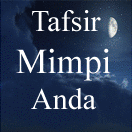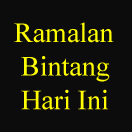The largest coral reef in the world, the
Great Barrier Reef forms a 1,250-mile (2,010-km) long breakwater
in the Coral Sea along the northeast coast of Queensland,
Australia. The reef has been designated a World
Heritage area, the world’s largest such site. The reef is comprised
of several individual reef complexes, including 2,800
individual reefs stretching from the Swain reefs in the south to
the Warrier reefs along the southern coast of Papua New
Guinea. Many reef types are recognized, including fringing
reefs, flat platform reefs, and elongate ribbon reefs. The reef
complexes are separated from the mainland of Queensland by
a shallow lagoon ranging 10–100 miles (16–160 km) wide.
There are more than 400 types of coral known on the
Great Barrier Reef, as well as 1,500 species of fish, 400
species of sponges, and 4,000 types of mollusk, making it one
of the world’s richest sites in terms of faunal diversity. Additionally,
the reefs hosts animals including numerous sea
anemones, worms, crustaceans, and echinoderms, and an
endangered mammal known as a dugong. Sea turtles feed on
abundant algae and sea grass, and the reef is frequented by
humpback whales that migrate from Antarctic waters to have
babies in warm waters. Hundreds of bird species have breeding
colonies in the islands and cays among the reefs, and
these birds include beautiful herons, pelicans, osprey, eagles,
and shearwaters.
The reefs also hide dozens of shipwrecks and have
numerous archaeological sites of significance to the Aboriginal
and Torres Strait Islander peoples.
See also CARBONATE; REEF.

















Tidak ada komentar:
Posting Komentar
Catatan: Hanya anggota dari blog ini yang dapat mengirim komentar.